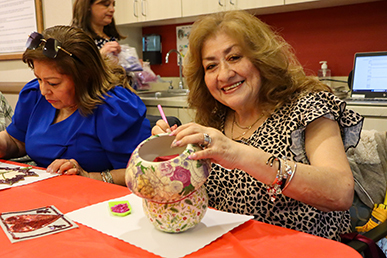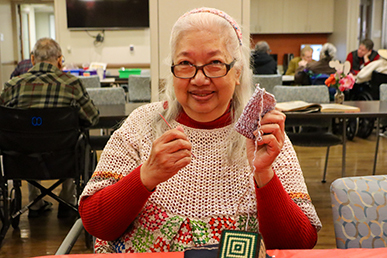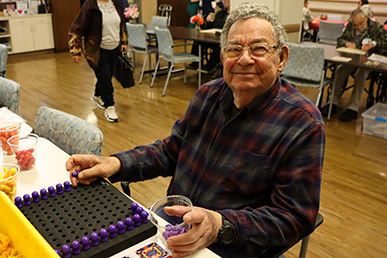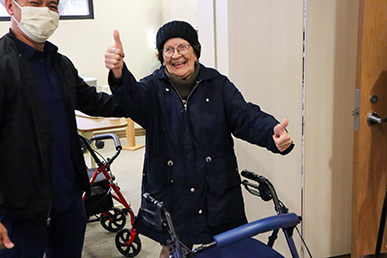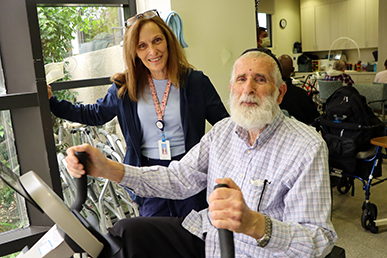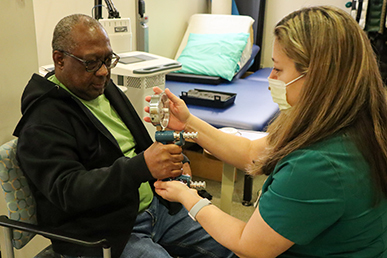A Day in the Life of Brandman Centers for Senior Care PACE


A Day in the Life of Brandman Centers for Senior Care PACE
Working to Enhance Seniors’ Quality of Life
There are so many ways Brandman Centers for Senior Care (BCSC) PACE helps make a difference in the lives of participants. Its comprehensive services spanning head-to-toe medical assistance, engaging social activities, rehabilitation, transportation, social services, delicious meals, and even home care services enable participants to stay healthier, active, and engaged—making BCSC PACE so much more than just an adult day healthcare center.
“As people live longer and the number of older adults in our community grows, there is an increasing demand for programs like BCSC PACE, which offers seniors critical services that empower them to continue to reside in their own homes for as long as possible,” says Vice President of BCSC PACE, Kim Stratman. “Seniors and their loved ones trust us to support their daily needs, and we are honored to fulfill that commitment every day.”
People from all backgrounds and walks of life look to BCSC PACE as a vital source of care and comfort as they seek to enhance their wellbeing. They turn to the program for the stability and support it provides—uplifting them with essential assistance in improving their diets; strengthening their bodies; sharpening their minds; managing anxiety and depression; learning to navigate illness; making new friends; and even coping with grief and loss.
Steven Glick is a prime example of how seniors benefit from BCSC PACE’s incredible array of services. He depends on expert, compassionate care from the entire BCSC PACE team at the Reseda location as he continues to recover from a life-threatening bike accident that left him with a broken neck and shoulder.
“I was at UCLA West Valley Medical Center for the first three months following the accident, then in a nursing home for a year before ending up at Providence Cedars-Sinai Tarzana Medical Center,” Steven recalls. “It was there that I met Dr. [Casey] Ott, medical director of BCSC PACE, who recommended I come to Los Angeles Jewish Health’s (LAJH) Grancell Village Campus for rehabilitation. That was last July, and thanks to the progress I’ve made, I haven’t had to be readmitted to the hospital since!”
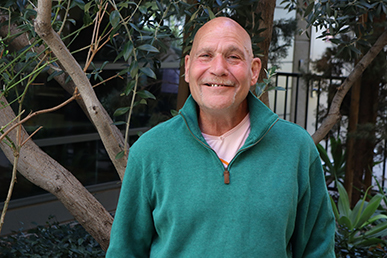
He now rents a room in a shared house in Sun Valley and visits BCSC PACE three times a week for exceptional medical care, delicious nutritious meals prepared by the outstanding dietary team, stimulating games and activities and wonderful camaraderie and socialization with fellow seniors. The center also arranges his transportation and identifies any medical specialist he needs.
“I’ve had so much injury in my body, and the folks at BCSC PACE have really listened to me and taken an active role in my recovery. The doctors and nurses who treat me there are world-class, and when my care requires specific expertise, they partner with outside specialists. During my time here, I’ve seen nerve and spine specialists, a cardiologist, physical and occupational therapists, an acupuncturist, a massage therapist, you name it. Whether it’s the medical staff, the person who drives the shuttles, or the cook who makes you meals, everyone is so full of love,” he says. “I never thought I’d get my quality of life back after my accident, but that’s what Brandman has given me. I’m forever in their debt!”
Participants like Steven are especially thankful for the fantastic activities that get their bodies moving and their spirits soaring. From puzzles, trivia games, and bingo, to stretching, music therapy, special entertainers, holiday celebrations, and beyond. BCSC PACE is a one-stop-shop for seniors eager to reap the physical and mental health benefits of robust social engagement.
BCSC PACE currently serves nearly 450 area seniors on its two campuses in Reseda and West L.A. Among those who visit the centers are: Fabiola Anleu, who enjoys coming for craft activities and credits BCSC PACE with “saving her life”; Linthong Phannaporn, who lights up when she visits, spreading joy as she shares her passion for knitting and crocheting with fellow program participants; and Alberto Masnicoff and his wife, who appreciate the physical and emotional nurturing they receive from BCSC PACE staff.
Across the program, among participants, families, and other loved ones, there is a deep sense of community for all who are involved with BCSC PACE. Perhaps Steven sums it up best: “Whenever I talk to my brothers, who have closely followed my health struggles, they always say, ‘Thank God for Brandman!’”
